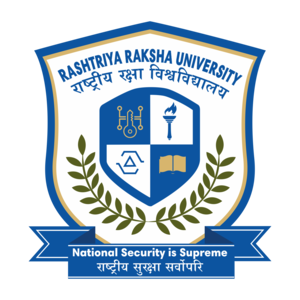The fourth day for Karmayogi mission
On Monday, Ms. Priya Ganesh, the lead person of BNY in Chennai, captivated her audience with an engaging and impactful session centered on enhancing soft skills for effective communication. With a dynamic and interactive approach, she guided the participants through a series of stimulating exercises and thought-provoking discussions designed to elevate their communication capabilities.
Ms. Priya’s session was particularly focused on officers, and she skillfully adapted her lectures to a learner-centered approach. This meant that she tailored her content to meet the specific needs and learning styles of the participants, ensuring that the resources was relevant and easily applicable. Through a combination of practical examples and real-world scenarios, Ms. Priya demonstrated how effective communication can be achieved. The session included various interactive activities that allowed participants to practice and refine their communication skills in real-time. By exploring the essential elements of successful communication, Ms. Priya highlighted key strategies for improving clarity, conciseness, and persuasion in both verbal and non-verbal interactions. Her approach emphasized not only theoretical understanding but also practical application, enabling participants to immediately implement the skills they learned in their professional roles. Overall, Ms. Priya Ganesh's session was both educational and empowering, providing valuable insights and tools for participants to enhance their communication effectiveness in their everyday interactions.
Session - 2
The second session was conducted by Ms. Dharani Mahalingam, an esteemed Assistant Professor of Psychology at Kumaraguru College of Liberal Arts and Science in Coimbatore. Renowned in the fields of psychology and counseling, Ms. Dharani brought her expertise to the forefront as she engaged participants with the critical topic of stress management. With a warm and approachable demeanor, Ms. Dharani navigated the session with an emphasis on addressing both personal and professional pressures that officers commonly face. Her interactive and empathetic approach allowed participants to openly discuss their stressors, creating a supportive environment where they could explore effective strategies for managing stress. Throughout the session, Ms. Dharani employed a range of techniques and practical exercises designed to help participants recognize the sources of their stress and develop coping mechanisms. She provided valuable insights into balancing work demands with personal well-being, offering actionable advice on how to tackle work-related pressures effectively. Her session not only equipped participants with theoretical knowledge but also with practical activities to enhance their resilience and improve their overall mental health. By the end of the session, attendees left with a better understanding of how to manage stress in a way that promotes both personal and professional growth.
Session - 3
The third technical session was delivered by Mr. Ruwan Uduwerage-Perera, a distinguished scholar and practitioner in the fields of policing, criminology, and community engagement. As the Director of Policing, Criminology & Justice at the University of East London, he also leads the International Centre for Policing, Innovation, Enterprise, and Learning (PIEL Centre). Mr. Uduwerage-Perera is renowned for his extensive expertise and innovative approaches in these areas. In his session, Mr. Uduwerage-Perera provided an in-depth exploration of community policing from an international perspective. His presentation offered a unique and insightful view into problem-oriented policing, a strategy that focuses on identifying and addressing the underlying causes of crime and disorder within communities.
He elaborated on several key concepts, including the role of community intelligence in enhancing policing efforts. Mr. Uduwerage-Perera highlighted the importance of gathering and utilizing information from community members to inform and shape policing strategies effectively. His discussion also covered the significant contributions and challenges faced by women in international policing, shedding light on their evolving roles and impact within the field.Furthermore, he addressed the role of security professionals in crime hotspotting, emphasizing the importance of targeted interventions in areas with high crime rates. Mr. Uduwerage-Perera’s session was marked by its comprehensive analysis and practical insights, providing participants with a deeper understanding of contemporary issues and strategies in policing and community engagement. His expertise and engaging presentation left attendees with valuable knowledge on how to approach and resolve complex policing challenges in a global context.
Session - 4
The final session of the day was led by Dr. L.S. Sathyamurthy, the esteemed Law Secretary of the Government of Puducherry. In his insightful lecture, Dr. Sathyamurthy focused on the crucial topic of victim orientation within the framework of new criminal laws. His presentation was marked by active engagement with both officers and students, creating a dynamic and interactive environment. Dr. Sathyamurthy meticulously covered the fundamental concepts related to victims, offering clarity on key terms and principles in criminology and law. His approach ensured that participants had a solid understanding of how victim rights and considerations are integrated into contemporary legal systems. Dr. Sathyamurthy also delved into recent amendments to law policies and their practical implications. He provided a comprehensive overview of how these changes aim to enhance the protection and support of victims within the criminal justice system. His discussion included detailed explanations of the new policies, their objectives, and how they impact the overall legal landscape. By addressing these topics with clarity and depth, Dr. Sathyamurthy's session not only enriched participants' knowledge but also highlighted the ongoing efforts to reform and improve the treatment of victims in the legal system. His engagement and expertise left a lasting impression, underscoring the importance of victim-centric approaches in modern criminal law.





.png)
.png)










.JPG)

0 Comments